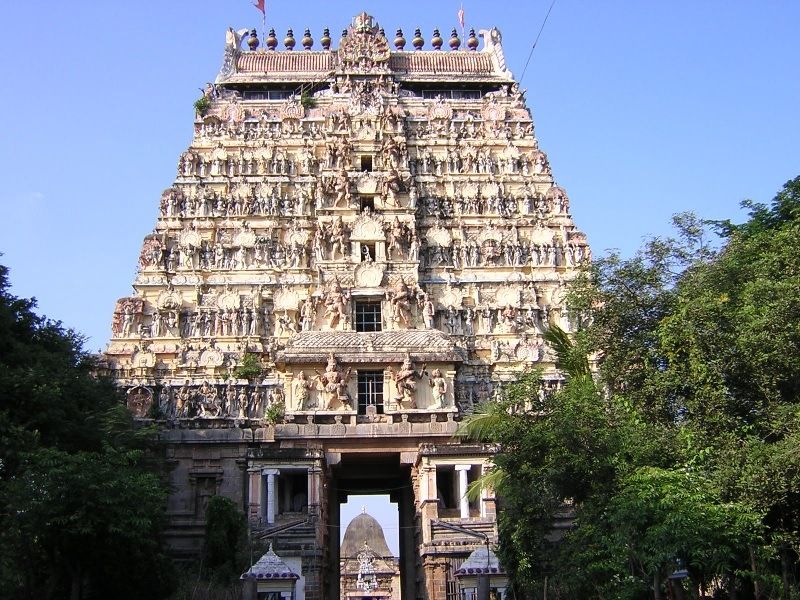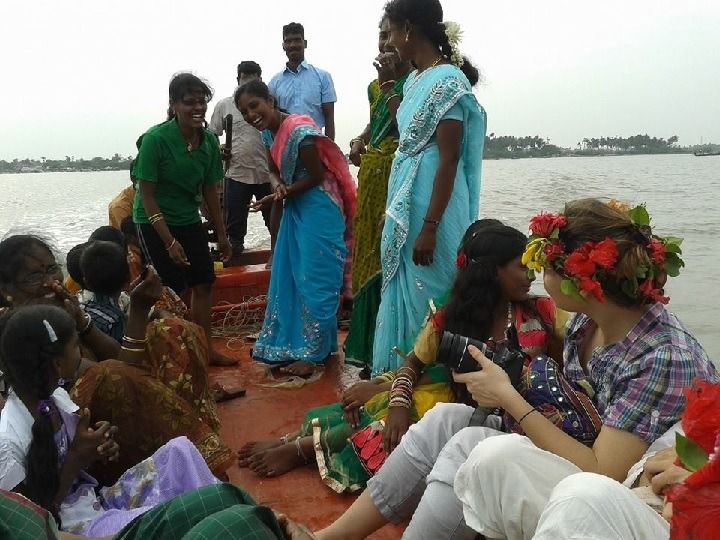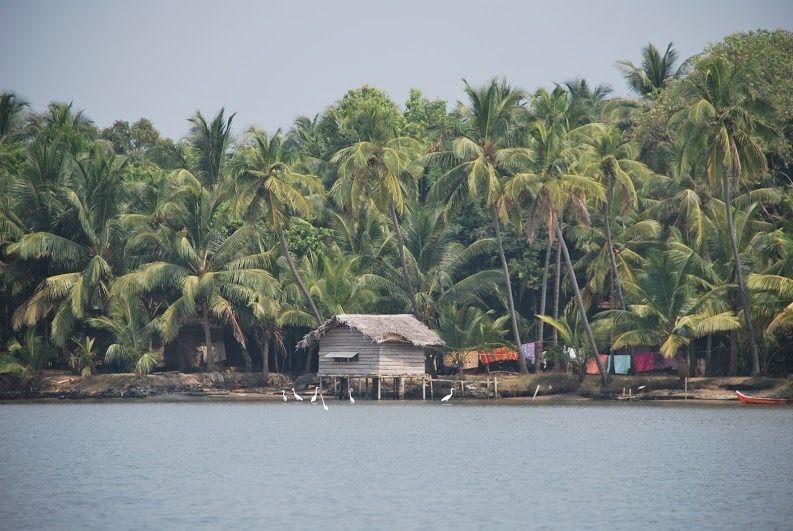The best of South India
15 Days
ABOUT THE ITINERARY
This is an innovative and unusual itinerary designed to discover the most extraordinary places of Tamil Nadu and Kerala. This route will allow you to explore the hotspots of biological and cultural diversity of South India. Bio-cultural diversity can be defined as “the diversity of life in all its manifestations: biological, cultural, and linguistic — which are interrelated within a complex socio-ecological adaptive system”. The diversity of life is made up not only of the diversity of plants and animal species, habitats and ecosystems found on the planet, but also of the diversity of human cultures and languages. During this trip you will have the opportunity to admire some of the most famous and renowned temples and architectures of Tamil Nadu and simultaneously being immersed into the cultural and spiritual heritage of its people. The tour will start from Mamallapuram and will end in the Malabar coast of Kerala; however if you do not have enough time you can break the journey in the ancient city of Kochi, from where you can take your international flight. Mahabalipuram is a flourishing port town of the Pallava rulers of south India, famous for being a fabulous “open-air museum” of sculpture under the vault of a burning sky. In Pondicherry also you can have direct and original exposures to the local reality, visiting the activities of the International community of Auroville, such as renewable energy projects, organic agriculture etc. On the way to Kumbakonam, you will visit Chidambaram, where is located the India only temple dedicated to Shiva Nataraja (dancing Shiva). Here we will visit an interesting development project of a local NGO supporting women and children in need. The Airavateswara temple of Kumbakonam and the Meenakshi temple in Madurai will be your next visits. From Madurai you will reach the ancient Jew town of Kochi via Periyar forests of Thekkady, one of the finest wildlife reserves in India. The days spent in Kochi, you will have free time to explore the ancient city, the ancient ayurvedic healing system and a cultural performance of some of the most famous dance such as Kathakali.
From Kochi the tour continues towards the famous cultural capital of kerala Thrissur, famous for its annual elephants festival called as Thrissur Pooram. From here you will enter the rainforests of Kerala, punctuated by various streams, brooks and rivers, that make an ideal habitat for a wide variety of flora and fauna. The trip covers tropical evergreen forests, semi evergreen forests, moist deciduous grass lands, shola, high rolling plateaus, dry thorny scrubs, ravines, rugged peaks and rain shadow regions. You will spend the next 3 days in Kerala in the scenic and uncontaminated hilly region of Wayanad, where you will be host in a local village, having authentic and direct experiences with local communities, farmers, artists and artisans who will make a real immersion into Kerala culture and traditions. During the tour you will have the chance to experience various accommodation options ranging from home stay, heritage resorts, hotels and wilderness camping are offered. We offer a range of activities as a way of experiencing the uniqueness of South India in its cultural and natural diversity. Wilderness – including rainforest and plantation trekking, village visit and communities’ interactions, bird watching, wildlife spotting, safari and butterfly watching. Whilst some of those places are located in unusual tourist route, we have taken care to make sure that guests are not denied any level of comfort in terms of accommodation. This ranges from heritage resorts, plantation accommodations, homey stays and city hotels.



SIGN UP FOR THE TRIP
Registration can be requested for group travel or for self-travel. For group travel, registration is not binding. Upon reaching the minimum number of members necessary for the formation of the group, usually 4 or 6 people, you will be asked for confirmation of booking and payment of a deposit.
JOURNEY OVERVIEW AND PROGRAM DETAILS
1° Day: arrival Chennai
Chennai- Mahabalipuram
Early morning arrival in Chennai (Madras) airport. Transfer to Mahabalipuram in the hotel for some rest. full day for the discovery Mahabalipuram. Mamallapuram dates back to the Tamil Pallava dynasty in the 7th-9th century. The structures here, mostly carved straight out of granite, are among the oldest existing examples of Dravidian (South Indian) architecture.
visit of sea Shore temple, the oldest structure in the area, build c. 700 AD, five rathas, literally chariots, dating from the 7th century are sculptures complemented by some enormous stone animals, including a large elephant, and Thirukadalmallai temple, the temple dedicated to Lord Vishnu.
Overnight in Mahabalipuram. (B)
2° Day: transfer to Pondicherry
Mahabalipuram – Pondicherry
Departure to Pondicherry. With its seafront promenade, wide boul¬evards, enduring pockets of French culture and architecture, and a popular ashram, Puducherry, the original name of the city, is unlike anywhere else in South India. Remains of French connection make this place distinct from other places in India. The former French colony was settled in the early 18th century as a colonial enclave and it retains a mildly Gallic air superimposed on a typical Indian background. Pondicherry is enriched with its architectural marvel and cultural wealth. Today a guided tour will allow you to discover the main tourist attractions. You will visit Sri Aurobindo Ashram, where Sri Aurobindo and the Mother spent their time for the upliftment of society, the Church of the Sacred Heart of Jesus and the Bharti and Bharthidasan Memorial museum. In its credit it has the birth-place of Subramanya Bharathy, the great Tamil poet and also the birth place of world famous film director M. Night Shyamalan. Later you will have free time to explore the city, beaches and promenade. You might walk along the seashore, which is always clean, charming and amazing with its beauty.
Overnight in Pondicherry. (B)
3° Day: visit Auroville
Pondicherry- Auroville- Pondicherry
Early morning transfer to Auroville. Auroville is conceived as a ‘Universal Town’. This is a place where people of different nationalities, beliefs and culture live in together. This amazing city of community living was started in 1968 by the Mother, renowned disciple of Shri Aurobindo, and now the development is going on. During the day you will have an introduction to life in Auroville, exploring a variety of sites and the soul of Auroville – Matrimandir. At 8,30 introduction to Auroville at visitor center, watching an explanatory video, visit the gardens of Matri Mandir, a modern architectural marvel, with a globe as high as 30 meters and have lotus-shaped foundation urn. Then the programme includes a 2-hour morning session on Shree Aurobindo and integral Yoga and a cycling tour to different Auroville locations. During the tour we will talk about The Auroville Charter and Dream, living in a community, architecture and city planning, forestation and farming, experiments on financial models and any other Auroville.
Overnight in Pondicherry. (B/L)
4° Day: visit Chidambaram
Pondicherry– Chidambaram- Kumbakonam
Departure to Chidambaram. Here we will visit an interesting development project of a local NGO called EKTA. The NGO promotes campaigns to end violence against women, facilitates networks for experiential sharing and collective action. It advocates and lobbies for gender sensitive policy changes to further the interest of women and address gender based violence in particular. In particular you will visit the Nambikkai Centre, which host 30 girls, providing them with maximum opportunity to explore their creative skills in different disciplines, sports, dance, music, etc. This Centre also acts as a drop-in centre for women and children in need. Lunch will be prepared by women of a local village. After lunch visit of Pichavaram mangroves forest, which is spread across of around 2800 acres on the back water with a group of small islands. On a traditional boat you will paddle across the narrow mangrove bushes where the motor boat cannot reach. Since Mangrove trees are dense and found in water bodies there are many birds found in this place, both native and migratory birds are commonly seen. Late afternoon you will visit Chidambaram temple for the aarti puja. After transfer to Kumbakonam, fa-mously called the ‘temple town’ or ‘The City of Temples’ given the number of temples that have been built in and around the town. Check in the hotel.
Overnight in Kumbakonam. (B/L)
5° Day: visit Kumbakonam
Kumbakonam
After breakfast visit Gangaikonda Cholapuram temple. The Temple is an outstanding monument of the Chola period. The name literally means ‘The town of the Cholas who defeated the Gangas’. Gangaikondacholisvaram temple is part of the UNESCO World Heritage site and a living sample of the Great Living Chola Temples. After visit and Dharasuram village. The village, located 3 km from Kumbakonam, is known for the Airavateswara temple constructed by the Rajaraja Chola II in the 12th century A and is an exquisite symbol of the supremacy of Chola architectural style D. The temple is a recognised UNESCO World Heritage monument. Airavat is the holy White Elephant and the temple is dedicated to the Lord of Airavat. On the way Evening performance of Bharathanatyam with traditional vegetarian dinner.
Overnight in Kumbakonam. (B/D)
6° Day: visit Tanjore
Kumbakonam – Thanjavur- Madurai
Early morning departure to Madurai. On the way visit to Brihadishvara Temple in Thanjavur. Thanjavur, otherwise known as Tanjore, is a city of Chola rulers and it gained popularity during the Chola period between 11th and 14th centuries. According to a local legend, Thanjavur derives its name from Tanjan, an asura ruler, who was killed by Lord Vishnu and Sri Anandavalli Amman for devastating the neighbourhood and was granted his last request that the city be named after him. The Great Chola emperor Raja Raja Chola built this famous Brahadeshwara temple or the Big Temple. This temple showcases the Indian architectural brilliance and is a favourite pilgrimage spot for many visitors visiting Tanjore. After lunch transfer to Madurai. Afternoon visit and sightseeing Madurai: Sri Meenakshi Temple. Palace, Alagar Koil. Madurai is a temple town of India which attracts people from several different part of the country for religious purposes. The enormous temple complex is dedicated to Shiva, known here as Sundareshvara and his consort Parvati or Meenakshi.
Overnight in Madurai. (B)
7° Day: transfer to Peryar
Madurai -Periyar
If you wish you can have an early morning visit to Meenakshi temple. After breakfast transfer to Periyar- (5hrs drive). Arrive and proceed to Hotel in Thekkady. Periyar Tiger Reserve, sprawled over an area of 777 Sq.km, is one of the 27 tiger reserves in India and it is considered an example of nature’s bounty, with great scenic charm, rich bio diversity and providing veritable visitor satisfaction. People oriented and park centred community based ecotourism is the hallmark of Periyar Tiger Reserve. These programmes are conducted by local people responsible for the surveillance of the vulnerable parts of the reserve. Spend some time to relax and walk around.
Overnight in Peryar. (B)
8° Day: transfer to Cochin
Periyar-Cochin
After breakfast go for nature walk (max 5 person in a group). Different nature trails traversing diverse habitats form the trekking routes, generally 4 to 5 km. in length. This is an interpretive programme offering excellent opportunity to watch birds, butterflies and other wildlife. The trails often pass through evergreen and moist deciduous forests interspersed with marshy grasslands. The programme starts at 7.00 am and lasts for about 3 hours. A maximum of 5 persons can go for trekking at a time along each nature trail, accompanied by a trained tribal guide. The Nature walk is the right programme to feel nature, hear her whispers and smell her flowers. After lunch transfer to Kochi (approx. 4 hrs drive). Arrive in Kochi and check into Hotel in Fort Kochi. Fort Kochi is a jewel in the crown of Kerala with its European heritage and true cosmopolitan temperament. A leisurely walk through its streets is one of the best ways to discover all that the city has to offer – its natural harbour and historical sites. Free for walks around…
Overnight in Kochi. (B)
9° Day: visit Cochin
Fort Cochin
Morning: Join our guide for a half day guided tour of Fort Kochi exploring the Jew town, Synagogue, Spice Markets, Dutch Palace, St Francis Church, Chinese Fishing nets. Return to the hotel by afternoon. Rest of the time free for shopping, cycling or just pure history walks (Jewish Synagogue is closed on Fridays and Saturdays; Dutch Palace is closed on Fridays). In the evening attend a cultural art performance at the theatre of Greenix village. The Village, Kerala’s only cultural art village is a pioneer establishment in the promotion of art & culture since 2006. The village covers an area of 45,000 sq. ft. and is dedicated to present various facets of Kerala’s rich culture. The evening cultural programme (starts at 5 pm and ends at 7,30 pm.) comprises of 7 different art forms: traditional Welcome dance of Kerala, Mohiniyattom, the classical dance of Kerala, Bharathanatayam, the south Indian classical dance; Martial arts of Kerala, Kalaripayattu; Demo as well as the episode of Kathakali; Theyyam, a temple ritual; final programme with a fusion of all the dance forms.
Overnight in Kochi. (B)
10° Day: backwaters Kumarakom
Fort Cochin-Kumarakom-Cochin
Early morning transfer to Kumarakom (1hr drive) for a daily cruise in backwaters. Kumarakom is about 10kms from Kottayam and it is one of most beautiful backwater stretches of Kerala. Besides the tourism activities in the backwaters, the Kumarakom bird sanctuary which extends over 14 acres is a major tourist attraction. Agriculture, fishing and tourism are the major economic activities of Kumarakom. Hence, it is declared as a Special Tourism Zone by Government of Kerala in 2005. Today you will experience a daily responsible tourism initiative, called “Village life experience”. It is a half-day tour package, to give you an authentic experience of village life. This is a good example of an itinerary linking the community-based tourism products and services, as envisaged by the Responsible Tourism programme (Government of Kerala). View the village life while on boat cruise. After lunch return to Kochi. Rest time or possibility of Ayurvedic treatment. Return to Kochi for an evening walk.
Overnight in Kochi. (B/L)
Here you can choose to break the journey and take your international flight from Kochi airport or continue the itinerary.
11° Day: Cochin and Cheruthuruthy
Cochin – Trissur – Cheruthuruthy
In the morning enjoy shopping in Cochin or go for an ayurvedic massage (during the Trissur Pooram soon after breakfast transfer to Thrissur). Along the way stop at the city of Thrissur. The name of Thrissur derives from “Tiru-shiva-perur” or from the city with the name of Shiva. With its rich history and cultural heritage, Thrissur is called the cultural capital of Kerala. Visiting the outside of the Temple of Vadakkumnatha (inside the non-Hindus cannot enter), elevated on a spur of rock, the temple is a sacred place for Hindus, famous for its wall decorations and ancient paintings, which ends the ceremonial procession of elephants. All the events of the Pooram are held around the temple, a sort of pilgrimage that is an explosion of colors, lights and sounds. Later the tour will continue to Cheruthuruthy and you will check in at an Ayurvedic resort on the river. The Nila River, or Bharathappuzha in the Malayalam language, is the second longest in Kerala. The culture and life of southern Kerala owe much to the Nila, in fact the name was extended throughout the surrounding area. Possibility to do an Ayurvedic massage.
Overnight at hotel in Cheruturuthy. (B, D)
12° Day: Nila River
Cheruturuthy
After breakfast, you will continue your journey with Kerala Kalamandalam, a particular university where the ancient arts of Kerala are studied, to spend a morning with professors and students (the institute is closed on weekends and holidays, such as Christmas or summer, in this case the program of the day is organized differently). In the afternoon, meeting with the interpreter to visit the village and observe the textile artisans who use the hand loom and the potters that shape the clay, with the possibility of creating some small objects and take it with them as a souvenir; here are some of the few metal-working families in the region. You will observe the complex scientific process that gives life to the metal alloy and the artistic techniques that then transform it into traditional tea pots or locks. In the evening, you’ll spend time in the company of popular artists who will show you the traditional heritage of the Nila. The initiative began in collaboration with the Vayali Folklore Group of Arangottukkra, which takes care of keeping the folklore of Kerala alive and supports the artists of the region.
Overnight in Cheruturuthy. (B, L, D)
13° Day: transfer to Wayanad
Cheruturuthy – Wayanad
After breakfast transfer by road to Wayanad. Proceed to Tharikapetta village in Wayanad. Wayanad is considered a green paradise, nestled among the mountains of the Western Ghats, forming the border world of the greener part of Kerala. Clean and pristine, enchanting and hypnotizing, this land is filled with history, culture and nature. Check in a family guest house and get to know the family who will host you. After a lunch prepared in your host family you will visit bamboo village of Tharikapetta, a responsible tourism initiative. You will have the chance to interact with local farmers and visit Uravu, a local NGO which produce bamboo handicrafts. The visit also includes interaction with the promoters, visit to the bamboo nursery and plant a bamboo sapling as part of a Traveller’s Forest initiative. You can visit the Bamboo workshop, interact with the artisans and designers and see how they create marvels out of different varieties of bamboo grown locally.
Overnight in Wayanad. (B,L,D)
14° Day: village life Wayanad
Wayanad
Early morning enjoy a small trek to Manikunnu Hill for the morning view! Walk the spice and vegetable gardens- a guided tour. “Meet our elders”: experience their ways of sustainable living, we take you to where our modernity began. A special lunch is organized for the guests with only products made of bamboo, from bamboo rice, to bamboo shoots to pickles. Unique experience. After lunch walk in the nearby villages and visit edakkal caves and some small Jain temples. In the evening you will participate to a cultural exchange programme with villagers (home stay providers and other will sing songs and al, guests can also sing their songs etc.)
Overnight in Wayanad. (B,L,D)
15° Day: depart from Calicut
Wayanad-Calicut
Transfer to Calicut airport (approx. 2,5 hrs drive). Fly to your international destination.
ACTIVITIES
- visit the beautiful and majestic temples of Tamil Nadu
- experience the International community and sustainable projects of Auroville
- visit the ex-French colony of Pondicherry
- boat trip in Pichavaram Mangroves forest
- visit children projects in Chidambaram
- experience a Bharathanatyam dance performance in Kumbakonam
- visit the famous Meenakshee temple of Madurai
- go for nature walk in the Wildlife Sanctuary of Peryar
- explore the ancient city of Fort Kochi
- experience a cultural programme, comprises of 7 different art forms, such as Kathakali Mohiniyattom, Bharathanatayam, Kalaripayattu, Kathakali and Theyyam
- experience responsible cruising in the Vembanad Lake, experiencing village life and spotting numerous migratory birds
- visit the famous Thrissur temple from outside
- Spend a day with the students of Kerala Kalamandalam, a particular university where the ancient arts of Kerala are studied
- visit the villages on the Nila river and observe the textile artisans who use the hand loom and the potters that shape the clay
- discover the bio-cultural diversity of Nilgiris and Wayanad
- live for 3 days with local communities in their homestays, experiencing the life of farmers of Wayanad
- visit bamboo handicraft and products at the Bamboo village
- rainforest trekking, forest and village trekking, wilderness camping, wildlife spotting
- cultural performances and activities
- historical and archaeological sites sightseen
SOCIAL AND ENVIRONMENTAL IMPACT
All the itinerary has been designed in order to promote direct or indirect benefits for local communities, environment and cultural heritages. When possible we have selected traditional accommodations sensible to social and environmental issues, following general principles and practices of responsible tourism. Many are the activities and exposure visits during the tour that will allow you to access the culture and the social interventions in favour of marginalised communities. Two are the main cross cutting issues on which you will be exposed in the tour: 1) interventions promoting children education and rights; 2) activities on environmental conservation and promotion of livelihood alternatives for communities located in hotspots of environmental conservation. In Pondicherry you can explore the International city of Auroville, having a direct exposure to interesting and innovative sustainable development projects. Near Chidambaram you will discover the activities of another local NGO called EKTA, working in support of women’s rights and empowerment. The visit to Nambikai centre will give you the possibility to interact with girl studying there. Visiting a local village you will get to know traditional prawn catchers and their livelihoods. In Pichavaram and Kumarakom the boats used for cruise belong to local communities, which will receive an additional income from our visit. In Wayanad you will visit the Bamboo Village, a community-based tourism initiative started by two local organizations – Uravu and Kabani – with the aim of providing alternate sources of income to the residents of Tharikkaipetta, through tourism. In particular, Kabani promotes a homestay program, including hospitality training for the local residents. Homestays are chronologically rotated among the host families to provide an equal opportunity to host guests. Uravu promotes social enterprises based on value addition of local, natural resources, especially bamboo, the “green gold”. Uravu implements integrated, end-to-end programs in the bamboo sector, which include providing skill training in bamboo processing, establishing micro enterprises, marketing of bamboo handicraft, cultivation of bamboo and promotion of eco-tourism. In Kumarakom, you will experience a responsible tourism initiative called “Village life experience” organized by the Nodal Agency for Responsible Tourism Kerala of the Government. Among the four destinations where RT (Responsible Tourism) is initiated in the State, Kumarakom is considered to be the most successful example of an itinerary linking the community-based tourism products and services. Moreover, your contribution of 70 euros will support development projects in favour of one of the most marginalised tribal communities of India. Tribal communities are still at the margin of Indian society and for this reason two are the main projects financed: 1) to conserve biological and cultural diversity 2) to promote the formal education of children belonging to Kattunayakan community of the Nilgiri district of Tamil Nadu and Kerala.
TIPS BEFORE DEPARTURE
A conscious approach to travel requires a considerable capacity and willingness to adapt and adjust to the local environment and culture. If you wish to travel with us we request you to be open enough to experience local culture, religious and traditions without bias and pre-conceived ideas you might have before the departure and which belong to our Western cultural way of thinking. Exploring with fresh eyes, with patience and openness, you will be able to access the real essence of South Indian cultural heritages through the places and people you are going to meet; if you are ready to do this effort you will really enjoy the beauty of a completely different cultural tradition, the extraordinary of the nature, the solemnity of Dravidian temples, the holiness of the waters of countless rivers and oceans that flow through this magic land.
Tamil Nadu and Kerala, despite being famous tourist destinations, are a very orthodox and conservative states, therefore it is advised that you following carefully a code conduct which respects local culture to avoid any hassles or unwanted troubles along your journey. In particular, avoid to show affection in public places, such as hugging, kissing etc., as this behaviour is not appreciated by local people. Smoking also is considered an offence (punishable under law!!). Even though this may come as a surprise to many, Kerala has a strict ban on smoking in public places. If you need to smoke in Kerala, remember to do it only in your room if it is allowed by the rules of your own hotel…
You are also advised to follow a certain dress code. There are basically two reasons why it is recommended to be careful about what clothes you wear while traveling to India. The first reason is to prevent you from hurting the sentiments of the local people and second, to protect you from the varied weather conditions prevailing in seasons. One more thing to keep in mind is mosquitoes…it is advised to keep your arms and legs covered because it provides protection (however, don’t forget to bring with you mosquito nets and repellents, especially for backwaters cruises). India’s time zone is GMT/UTC +5.30, so chances of jet lag cannot be ignored. It is advised that you get onto India’s time zone as soon as you leave home and try to eat and sleep on Indian time. Also, if you reach India early in the day, try to stay awake – this will help the body’s internal clock to reset.
HOTELS
We selected beautiful and traditional heritages resorts with all the facilities throughout the tour. Whilst in Wayanad we have selected traditional homestays in Tarikapetta village. In Madurai, Cochin and Metupalayam, accommodations are typical of basic city hotels with all services available. However, most of the hotels have been selected carefully according to criteria of social and environmental impacts.
TRANSPORT
Private vehicles o mini-buses with AC according to the number of participants for all the itinerary from Chennai to Calicut; bicycle trip in Auroville; boat ride in Pichavaram and Kumarakom.
WHEN TO GO
The climate in most of Tamil Nadu and Kerala is essentially tropical. It is hottest in April, May, June with the temperature going over 40°C. It is coolest in December, January, but not really cold anywhere except in the hill stations (Ooty, Kodaikkanal, Yercaud), where night temperatures may drop below 5°C. Even though Tamil Nadu and Kerala experience pleasant weather throughout the year, October to March is considered to be the best time especially to visit Kerala. In Kerala the monsoons (rainy season) arrive in June and continue till the end of September. Usually people used to avoid these months due to heavy rains, but visiting Kerala during monsoons is considered as an experience in itself.
TESTIMONIALS
“I had the most fantastic time, amazing how many wonderful sights we’ve seen and things we’ve done. I can’t praise our guide, highly enough; he gave his all to ensure that we had the most out of every experience offered to us. Thank you all for all the work and expertise that went into preparing this trip… it was stunning and a wish come true”.
Laura Di Niglio, 2014“This itinerary is excellent as an introduction to South India, at the discovery of the richness of culture and nature of this beautiful land. Our local guides, NGO volunteers and interpreters helped us in changing our perception of what we think is environmental conservation and how we should protect the nature. It offered most rewarding experiences for us and really contributed to our enjoyment and understanding”.
Jacopo Visconti, 2014
The best of South India

